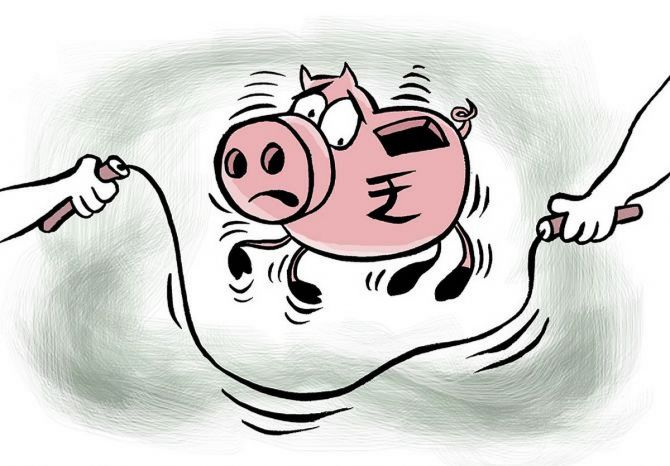Lawyers say compensation may be an uphill task for investors because of a lack of judicial precedent and broader institutional difficulties.

Mahesh Chauhan* was betting that the markets would fall after the Budget.
He built his positions accordingly.
All he could do was watch when the S&P BSE Sensex rose over 2,000 points instead.
There was a technical glitch at his discount brokerage.
He had no way to cut his losses. And he’s been fighting for compensation since.
Somewhere along the way, he realised that two clauses on a form he signed absolve the broker and the stock exchange of any liability in the event of a technical glitch.
This may also affect any investor who seeks compensation for a subsequent outage at the National Stock Exchange (NSE) on February 24.
It may also absolve HDFC Securities and Zerodha Broking, which reportedly faced technical issues on Monday, March 1.
Upstox (RKSV Securities) users had faced issues on February 1.
Lawyers say compensation may be an uphill task for investors because of a lack of judicial precedent and broader institutional difficulties as snags become increasingly common.
Investor compensation can be a tough task in terms of financial liability for stock exchanges and brokerages as the value of securities changing hands often runs into trillions, suggested Sandeep Parekh, managing partner of Finsec Law Advisors and former executive director at the Securities and Exchange Board of India (Sebi).
"The system will collapse," he said.
This may be the reason that Sebi’s master circular for stock brokers excludes claims against brokers and exchanges for outages, he added.
“The client is aware that trading over the internet involves many uncertainties.
"The stock broker and the exchange do not make any representation or warranty that...service will be available to the client at all times without any interruption,” says clause 9 in Sebi’s circular on trading using internet and wireless technology.
“The client shall not have any claim against the exchange or the stock broker on account of any suspension, interruption, non-availability or malfunctioning of the stock broker’s... service or the exchange’s service,” says clause 10 on page 195 of the same document.
Both are included in the form that Chauhan signed.
Sumit Agrawal, founder, RegStreet Law Advisors and ex-Sebi official said that liability of stock exchanges and brokers for system failures such as the one at the NSE is that of an evolving tortous strict liability.
“Strict liability is a standard of liability where a person is legally responsible for the consequences flowing from an act or omission, even in the absence of an intentional fault.
"While the contract with investors by brokers has disclaimer clauses, compensation of Investor's losses are more focused on equity rather than the codified law.
"However, there is no judicial precedence in India in such cases,” he said.
The US’ Securities and Exchange Commission (SEC) fined the New York Stock Exchange and two affiliated exchanges $14 million over a trading halt in 2015.
It had also previously penalised the Nasdaq over system glitches during Facebook's initial public offering.
India's stock market regulator too has asked the NSE to explain reasons for not migrating to the disaster recovery site, noted Agrawal.
“In the current episode, Sebi is seized of the matter and only time will tell how Sebi deals with it and nudges the stock exchanges to tighten the shortcomings of market infrastructure,” he said.
Emails sent to the stock exchanges, Zerodha Broking, Upstox (RKSV Securities) and HDFC Securities did not receive a reply.
*Name changed on request











